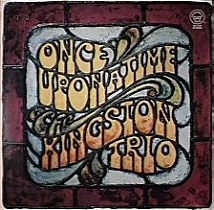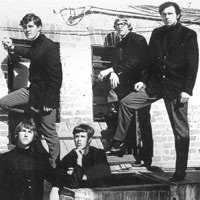
Gordon Meredith Lightfoot Jr. was a Canadian singer-songwriter and guitarist who achieved international success in folk, folk-rock, and country music. He is credited with helping to define the folk-pop sound of the 1960s and 1970s. He has been referred to as Canada's greatest songwriter and his songs have been recorded by some of the world's most renowned musical artists. Lightfoot's biographer Nicholas Jennings said, "His name is synonymous with timeless songs about trains and shipwrecks, rivers and highways, lovers and loneliness."
"Mr. Tambourine Man" is a song written by Bob Dylan, released as the first track of the acoustic side of his March 1965 album Bringing It All Back Home. The song's popularity led to Dylan recording it live many times, and it has been included in multiple compilation albums. It has been translated into other languages and has been used or referenced in television shows, films, and books.

The Way I Feel is the second studio album by Canadian singer-songwriter Gordon Lightfoot, originally released in 1967 on the United Artists label.

Back Here On Earth is Canadian singer Gordon Lightfoot's fourth studio album, released in 1968 on the United Artists label.

Don Quixote is Canadian singer Gordon Lightfoot's seventh studio album, released in 1972 on the Reprise Records Label. The album reached #42 on the Billboard album chart.

Live at the Fillmore — February 1969 is a live album released by the American rock band the Byrds in 2000 on Columbia/Legacy. Compiled from two performances at the Fillmore West on February 7 and 8, 1969, the album includes several songs that are not found on any of the group's studio albums.

"Just Like Tom Thumb's Blues" is a song written and performed by Bob Dylan. It was originally recorded on August 2, 1965, and released on the album Highway 61 Revisited. The song was later released on the compilation album Bob Dylan's Greatest Hits Vol. II and as two separate live versions recorded at concerts in 1966: the first of which appeared on the B-side of Dylan's "I Want You" single, with the second being released on The Bootleg Series Vol. 4: Bob Dylan Live 1966, The "Royal Albert Hall" Concert. The song has been covered by many artists, including Gordon Lightfoot, Cat Power, Nina Simone, Barry McGuire, Judy Collins, Frankie Miller, Linda Ronstadt, the Grateful Dead, Neil Young, The Black Crowes, Townes Van Zandt, and Bryan Ferry. Lightfoot's version was recorded only weeks after Dylan's original had been released and reached #3 on the Canadian RPM singles chart.
"I'm Not Sayin'" is a song written by Gordon Lightfoot. It was recorded in December 1964 and released as a single A-side in 1965 and on his 1966 debut album Lightfoot! The lyrics detail the singer's promise: not that he can necessarily love the subject, or be true to the subject, but only that he can try to do so. The single peaked at #12 in Canada in June 1965. Cash Box described it as "a rhythmic, folkish ode about a guy who refuses to make any romantic promises to his girlfriend."

Blake & Rice is an album by American guitarists Norman Blake and Tony Rice, released in 1987. They later teamed up again for Norman Blake and Tony Rice 2.

Once Upon a Time is a live album by the American folk music group the Kingston Trio, recorded in 1966 and released in 1969. It was originally released as a double-LP with a three-page booklet and reached number 163 on the Billboard Pop Albums chart. The lead-off single was "One Too Many Mornings" b/w "Scotch and Soda".

Aspen Gold is an album by the American folk music group the Kingston Trio, released in 1979. The group consisted of the line up of Bob Shane, George Grove, and Roger Gambill.

Tony Rice Sings Gordon Lightfoot is a compilation album by American guitarist Tony Rice, released in 1996. It contains tracks written by Gordon Lightfoot and previously recorded by Rice, plus a previously unreleased track, "Whispers of the North".
"Ribbon of Darkness" is a song written by Gordon Lightfoot that was released in 1965 as a single by Marty Robbins. The song was Robbins' eleventh number one on the U.S. country singles chart, where it spent one week at the top and a total of nineteen weeks on the chart.
Not to be confused with Styx (band)

Emotions is the fourth studio album by American singer Brenda Lee. The album was released on April 3, 1961 on Decca Records and was produced by Owen Bradley. It was one of two studio albums released by Lee in 1961 and its title track became a Top 10 hit on the Billboard Hot 100 the same year.

H. P. Lovecraft II is the second album by the American psychedelic rock band H. P. Lovecraft and was released in September 1968 on Philips Records. As with their debut LP, the album saw the band blending psychedelic and folk rock influences, albeit with a greater emphasis on psychedelia than on their first album. H. P. Lovecraft II failed to sell in sufficient quantities to reach the Billboard Top LPs chart or the UK Albums Chart, despite the band being a popular act on the U.S. psychedelic concert circuit. Legend has it that the album was the first major label release to have been recorded by musicians who were all under the influence of LSD.

The discography of Pete Seeger, an American folk singer, consists of 52 studio albums, 23 compilation albums, 22 live albums, and 31 singles. Seeger's musical career started in 1940 when he joined The Almanac Singers. He stayed with the group for two years until he was drafted into the Army to fight in the Second World War. After the end of World War II in 1945, Seeger helped found an organization known as People's Songs, along with the influential folk music magazine People's Songs Bulletin. He published several singles and a studio album with the magazine. Seeger would play at People's Songs events, called hootenannies, until the organization folded in 1949. After People's Songs, Seeger and another former member of the Almanacs, Lee Hays, founded the Weavers, who achieved commercial success. In 1952, The Weavers went on hiatus due to the Red Scare; Seeger and Hays both had Communist ties. After the demise of the Weavers, Seeger released a solo album, American Folk Songs for Children, in 1953 on Folkways Records. He continued to release albums on Folkways until he signed with Capitol in 1961.
"I Walk on Guilded Splinters" is a song written by Mac Rebennack using his pseudonym of Dr. John Creaux. It first appeared as the closing track of his debut album Gris-Gris (1968), credited to Dr. John the Night Tripper. The song has subsequently been performed and recorded by many other musicians, including Widespread Panic, The Neville Brothers, Cher, Marsha Hunt, Johnny Jenkins, Humble Pie, King Swamp, the Allman Brothers Band, Paul Weller, the Flowerpot Men, Michael Brecker, Tedeschi Trucks Band and Jello Biafra.

The E-Types were an American garage rock band formed in Salinas, California, in 1965. The group's sound combined striking three-part vocal harmonies and Jody Wence's jangling keyboards, with professional production techniques that were outside of the garage band norm. During the E-Types' recording career, the band released five singles, including their most notable record "Put the Clock Back on the Wall". Although the band was short-lived, the E-Types had a profound presence in San Francisco's live scene and, years after their disbandment, the group recorded a reunion album.













